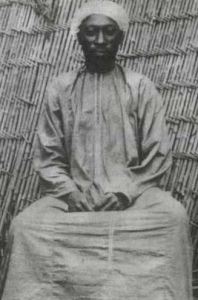Founder of Hadassah, Mother of Israel
Henrietta Szold (1860-1945) was born in Baltimore, the eldest of eight daughters. After finishing high school, she became a teacher, and while working at both an all-girls school and a Jewish school, she was also taking additional studies at Johns Hopkins University. Soon, she opened up her own night school to assist Russian-Jewish immigrants and teach them English. After some 15 years as a teacher, Szold became the first editor of the Jewish Publication Society (famous for its JPS Tanakh, and now the oldest non-profit publisher of Jewish literature in English). Over the next 23 years at this position, she translated multiple Hebrew books into English, edited many others, wrote countless articles, and helped to produce the popular Jewish Encyclopedia, as well as Marcus Jastrow’s well-known Talmudic Dictionary. Meanwhile, Szold pursued advanced studies at the Jewish Theological Seminary (America’s leading Conservative Jewish academy). At the time, these studies were reserved only for men, but Szold managed to persuade the school president to let her in. In 1898, she was elected to the executive committee of the Federation of American Zionists, the first woman on the board. Her devotion to Zionism became even greater when she took her first trip to Israel in 1909. Three years later, she founded Hadassah, an organization that worked to establish a proper health care system in Israel – for both Jews and Arabs. Under Szold’s leadership, Hadassah helped to create some of Israel’s very first dental clinics, maternity clinics, food banks, medical schools, nursing programs, and at least half a dozen hospitals (Jerusalem’s Hadassah Medical Centre is still one of the largest hospitals in Israel). Today, Hadassah, or the Women’s Zionist Organization of America, is one of the largest volunteer organizations in the world, with over 330,000 active members serving to support health education, women’s rights, freedom of religion, and the State of Israel. Among her many other accomplishments, Szold co-founded the Ihud political party, and played a key role in Youth Aliyah, an organization that rescued over 30,000 Jewish children from the Nazis. Today, many institutions are named after her (including a public school in Manhattan), and Israelis celebrate Mother’s Day on her yahrzeit, the 30th of Shevat. Szold passed away in the Jerusalem hospital she helped to found, and was buried in the nearby Mount of Olives. She was recently inducted into America’s National Women’s Hall of Fame.
Words of the Week
… there is no ending that is not a beginning.
– Henrietta Szold



